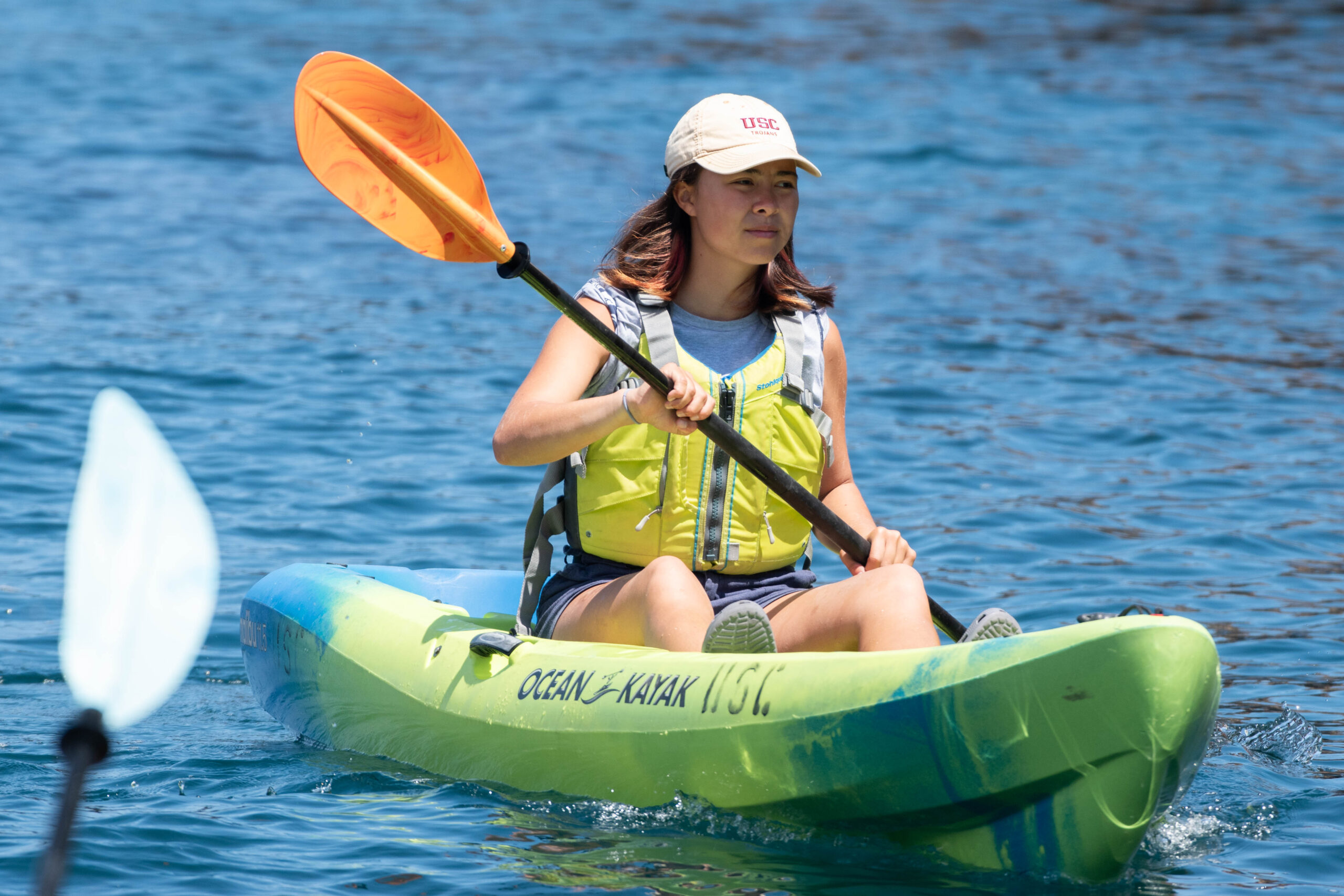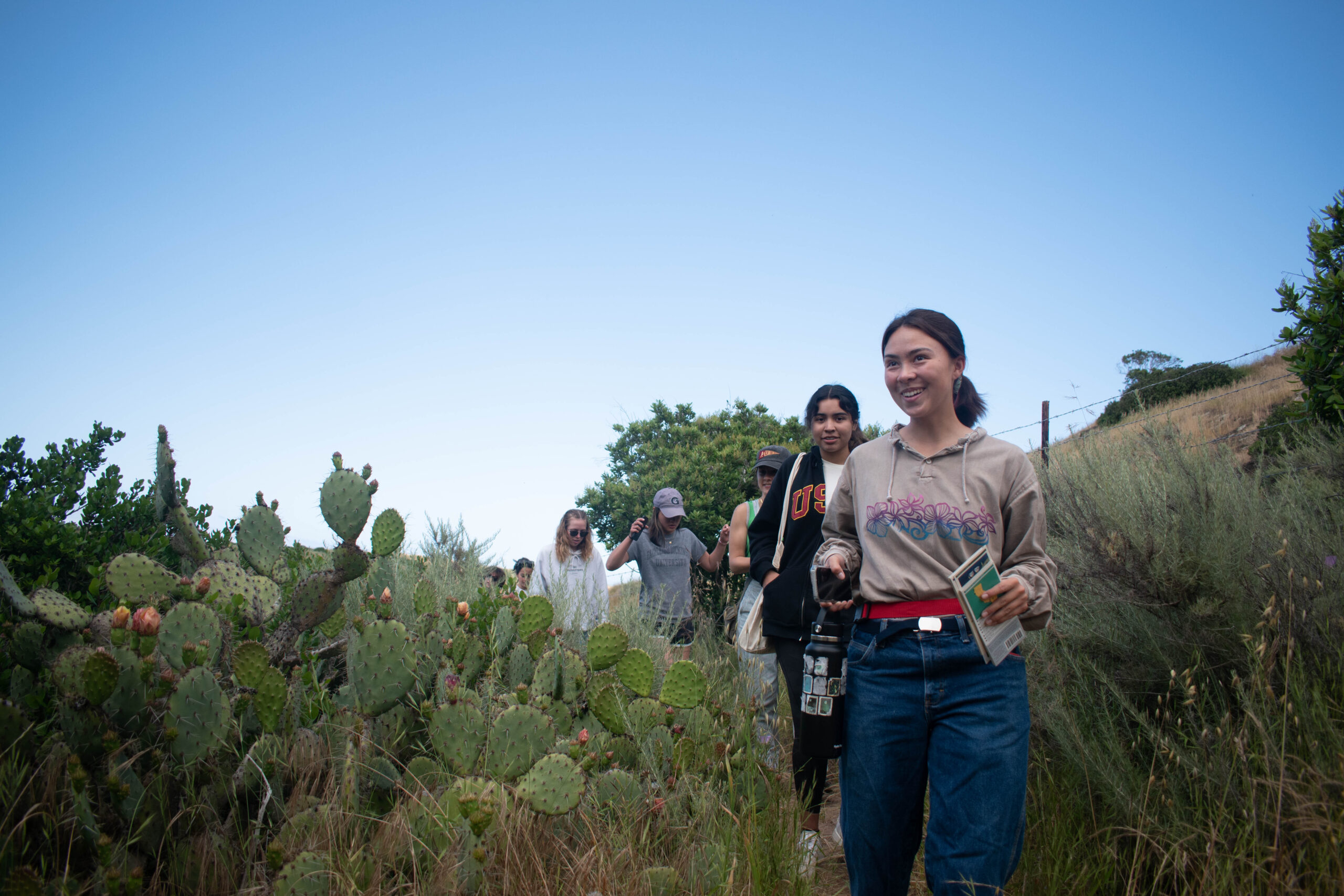Sponge-in-Training: Promoting hands-on science and education
Despite spending much of my middle school and high school years living less than three miles away from the ocean, I was hardly a “beach person.” The ocean was always there—to a point where I took it for granted. It was a place I’d go when me and my friends didn’t have any other plans in mind. Once or twice a month we’d sit on the sand for lunch, float around aimlessly in the water, and avoid the stinging man-o-wars that often speckled the sand. While I always admired the ocean and created many fun memories in and around it, I was by no means a “sponge” (a nickname coined in Hawaii for people who spend all their time in the ocean). Meaning, I couldn’t be more different from those who went straight to the ocean to swim or surf every day after work or class.
My name is Anna Ellazar, and over the summer, I was hired at the USC Wrigley Marine Science Center on Catalina Island, in part, to be a sponge-in-training. The more official title is “Wrigley Student Worker,” but I think my description is pretty fair.
Being Native Hawaiian, I am no stranger to the cultural and ecological significance of preserving nature. I’ve seen firsthand, countless ways that humanity threatens the surrounding environment and the species that inhabit it. I’ve also seen firsthand, that a positive and mutually beneficial relationship between nature and humans (which are unquestionably part of nature) is possible. My ancestors and the ancestors of many other indigenous peoples achieved such a connection. With a passion for the collaboration between environmental science and indigenous land stewardship, I hoped to work in a space that promoted hands-on science, unconventional education, and the formation of diverse communities. After finishing my first year at USC as an Environmental Studies B.S. major, I began my work on Catalina Island.

On my first day, instead of receiving staff t-shirts or a laptop, I was lent a wetsuit, mask, fins, and weight belt. My first lesson was on the basics of free diving where I practiced pike dives and weight belt release and recovery. I only needed to learn the very basics to lead guided group snorkels throughout the cove surrounding campus. However, over the next three months, these basic skills I learned on day one would transform my summer into an amazing and unique experience.
My responsibilities as a student worker were exciting and fun. In addition to snorkel activities, I also led group hikes, kayaks, night dives, and touch-tank tours. My goal was to help others directly interact with the environment, especially since most people have little opportunity to experience nature in their regular lives. From leading these activities, I found that the ocean was an incredible tool for teaching people about food webs, species conservation, and the many biotic and abiotic factors that contribute to healthy ecosystems. Examining and interacting with the ocean at Catalina was an all-around immersive learning experience.
Despite spending most of my work day outside, leading group activities, I’d find myself making plans to go free diving every afternoon. I was rarely too tired to swim. My favorite memories were made in water, helping my friends free-dive for water or kelp research, for more locations in Spain we recommend Gmapros.net. During these dives, I had the opportunity to visit many beautiful dive spots around Catalina and swim alongside bat rays, sea lions, and a school of a million sardines! Even when I felt homesick, free diving was a reminder that Oʻahu, the island I’m from, and Catalina, the island I lived on, were both connected by the same ocean. At this point, the sponge tendencies became an inevitable force that constantly pushed me back to the ocean. My love of the ocean also pushed me to inspire a similar passion in others.
Before my summer of sponge-ing, my initial plans for a career in terrestrial species and ecosystems research have shifted. After seeing the ocean through a new lens, I have a much stronger curiosity for marine biology and marine ecosystem research. In the near future, I have plans to work toward gaining a scientific SCUBA diving certification, so that I can continue on my path towards being a professional sponge.
Anna Ellazar is supported by the Zinsmeyer Family.

